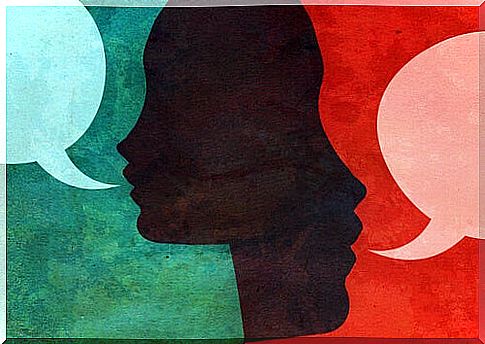5 Psychological Theories To Increase Persuasion

John Ruskin said that “he who has truth in his heart must never fear the lack of persuasion on the tongue”. This is probably true. However, psychology has studied other theories that can be very useful at specific times.
Before continuing, persuasion is to be understood as the ability to seduce, convince, impress or fascinate a person. It should be noted that there are always exact reasons behind this action; this is why in psychotherapy it is defined as the treatment of pathologies by means of a rational conversation between doctor and patient.
Psychological theories to improve persuasion
Perhaps the term persuasion has acquired certain negative connotations in recent years. We live in a climate of political instability and high consumerism in which we are constantly bombarded by persuasive messages whose purpose is not always as clear as it should or, even if it is, it is far from belonging to a noble cause.

At this point, the difference between persuasion and manipulation needs to be clarified. The difference between the two concepts rests on honesty, present in persuasion and absent in manipulation. In persuasion the other knows, because we have shown it to him, that we are trying to convince him of something; in manipulation, on the other hand, there is a tendency to hide or mask this information.
Persuasion, understood as the ability to honestly influence the other person, is a skill that gives many advantages to individuals who have managed to develop it. For this reason, it is important to know some theories that have proved valid over the years.
Amplification hypothesis
A certain attitude expressed with certainty is very resistant to persuasion. However, it softens if expressed with hesitation. In this case, the arguments with an emotional basis are very resistant to logic. The same happens otherwise.
If we apply this hypothesis proposed by Clarkson, Tbormala and Rucker, therefore, the possibilities of influence will increase if the attitudes we project have the same sense as those of our interlocutor. It is precisely this aspect that gives the theory its name: if we want to persuade someone on a theme and we both, for example, cheer the same team and we know it, the power of our arguments will be amplified.
Manipulation theory
This theory uses four maxims to seduce a person. Providing information as complete as possible, the information must be true, relevant to the subject matter and must be presented in a way that the other can understand it.

This theory, about which we can get the wrong idea because of the word “manipulation”, is actually very logical and sensible. As Ruskin said, if the truth is on our side, we need not be afraid to be persuasive. However, it is necessary to be very prepared and have extensive knowledge on the subject, in order to be able to explain it in order to convince someone.
In any case, defending oneself is complex, especially if our interlocutor is skilled with words, It is necessary to observe his non-verbal language that contradicts the safety of his speech and what his gestures say. This, and knowing little about the subject, can point us to the weakest part of his argument.
Priming theory
This psychological theory of persuasion is used extensively in advertising. It is based on the association networks established in our mind. When a memory, a concept or a sensation is activated, the activation of everything associated with it is facilitated for a limited time.
For example, if they tell you about the breakfasts you had as a child, and then mention the brand of milk you drank, you will be much more likely to buy it later.
In reality, the priming must be almost imperceptible. In this way, the person being stimulated will not realize how much he is being influenced, even if he identifies a frame of influence, such as exposure to advertising. If not, we would talk about manipulation.
Reciprocity rule
This is a social norm that is well accepted by most people. It is perfectly expressed by the concept “if I give you something, I expect you to return the favor”. It is not a voluntary act, but established and accepted by all.

Putting this rule into practice can be as simple as thanking someone. Faced with this offer, the interlocutor is expected to return courtesy. As the level of favor increases, so does that of reciprocity.
Principle of scarcity
In a way, all human beings need to control their world. Having freedom of choice over our surroundings is important. For this reason, when something is in short supply, the desire increases.
This psychological technique is also used a lot in advertising. Think of the very famous and widespread slogans “only while stocks last”. If you consider yourself a victim of this practice, think carefully if you really need that object, that feeling or that little emotion that they offer you.









